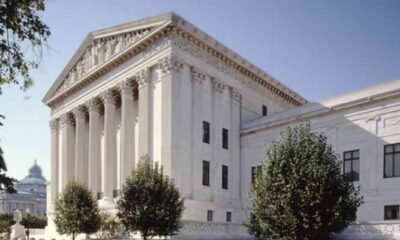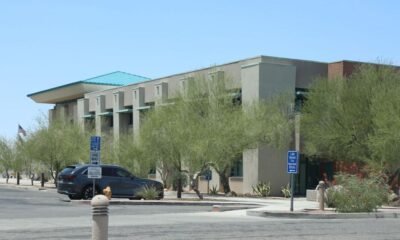Politics
Arizona Supreme Court Greenlights Voting for Nearly 98,000 Amid Citizenship Doubts

PHOENIX — Nearly 100,000 Arizonans, recently found not to have provided proof of citizenship, will still be allowed to vote this election cycle, according to a ruling by the Arizona Supreme Court.
In a decision issued late Friday, the court dismissed concerns raised by Maricopa County Recorder Stephen Richer. He argued that election officials should not permit these individuals to vote in state or local elections, citing a 2004 voter-approved law requiring documented proof of citizenship except for federal elections.
Chief Justice Ann Scott Timmer, authoring the court’s opinion, confirmed the existence of the 2004 law but found no legal basis for barring registered voters from participating in all eligible races. The ruling emphasized the court’s commitment to due process, stating that voters should not be disenfranchised amid administrative failures.
Investigations revealed that the discrepancies arose from an error in how citizenship proof was confirmed. Timmer noted that this issue was not the fault of the individuals on the voter rolls, many of whom had attested under penalty of perjury to their citizenship.
Crucially, the court highlighted that there are established procedures for addressing claims of ineligibility, allowing voters the opportunity to respond before any action is taken against them.
Following the ruling, Richer expressed gratitude to the Supreme Court for its prompt response, acknowledging that the lawsuit was a “friendly” initiative aimed at clarity amidst conflicting viewpoints between him and Secretary of State Adrian Fontes.
Fontes welcomed the outcome as a victory for those whose voting rights were at risk. He stated, “Today marks a significant victory for those whose fundamental right to vote was under scrutiny.” The court’s decision allows nearly 100,000 individuals to participate fully in the upcoming elections.
The genesis of this issue can be traced back to a law passed in 2004, which mandated proof of citizenship for voter registration. However, those who obtained their Arizona driver’s licenses after October 1, 1996 were presumed to be citizens. This grandfathering system inadvertently led to confusion when individuals with older licenses did not provide proof when updating their registrations.
The Motor Vehicle Division had mistakenly assessed voter eligibility based on the date of the most recent license change, rather than the original issuance date, causing the clerical errors that impacted the voter rolls.
This case underscores the broader implications of voter registration laws, particularly how administrative oversights can inadvertently affect citizen participation in elections. Both Richer and Fontes confirmed that they believe most affected voters are likely citizens and had presumed they met the requirements.
Looking ahead, officials plan to contact voters needing to update their citizenship documentation after the election, with measures already taken to prevent similar issues in the future.
The ruling is also seen as advantageous for the Arizona Republican Party, which supported allowing these voters to participate, particularly as demographic data revealed a higher proportion of affected individuals were Republican.
















